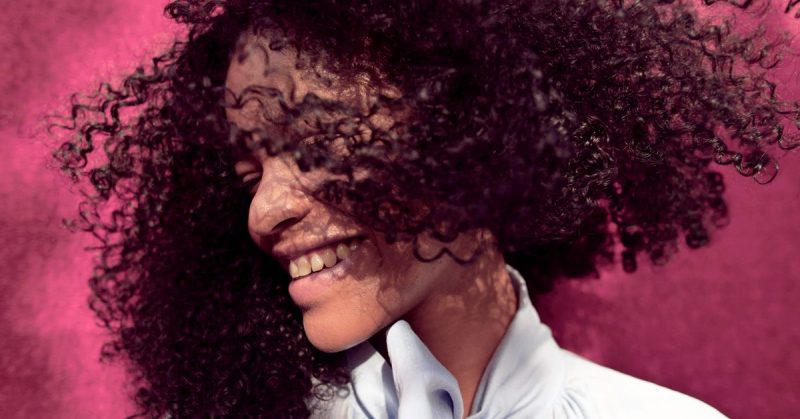Expert Tips for Stunning Results

We’ve got professional tea for using jojoba oil by hair type.
Jojoba oil is a must-have for moisturizing shampoos and skincare products.
The slippery oil is squeezed out of jojoba plant seeds. These plants are shrubs that pop up around the desert-y spots ofArizona, southern California, and Mexico.
Though it’s been used as a natural remedy for centuries, jojoba oil is having a major hair moment right now.
Keep reading to learn how to use it for strong, shiny hair and a healthy scalp.
“Jojoba oil is incredibly nourishing,” says Mayara Macedo, a hairstylist and scalp specialist in NYC. “It’s a natural oil that closely resembles the sebum our skin and scalp produce,” Macedo explains.
Because of this, Macedo says it’s super compatible with our bodies and works great as a balancing treatment — whether you have an oily or dry scalp.
While its proven benefits mainly revolve around its help with scalp health, jojoba oil can also strengthen and moisturize hair. However, it’s not the go-to pick for improving hair loss (that’s usually minoxidil).
Moisturizes, shines, and balances
If you’re dealing with dryness, jojoba oil is fantastic for adding moisture to your scalp,” Macedo says.
“Its natural hydrating properties help restore balance, leaving everything healthier and more manageable.”
Plus, it adds hella shine.
Helps with dandruff
“Jojoba oil has been known for its antioxidant and anti-inflammatory properties in addition to its conditioning and emollient properties,” says Kseniya Kobets, MD, board-certified dermatologist and Director of Cosmetics Dermatology at Montefiore Einstein Advanced Care.
These properties help out with dry, irritating dandruff.
This also explains jojoba oil‘s Mexican Indian history as a treatment for sores, which eventually caused researchers to flag its potential for improving skin conditions like acne and psoriasis (but please see a dermatologist for proven treatment options).
Strengthens and prevents breakage
Though many say that jojoba oil grows hair, this claim is probably tossed around because it helps moisturize hair follicles — which can keep dryness at bay.
A dry environment can be a breeding ground for breakage, hair loss, and dandruff.
Also, your split ends say hello — jojoba oil can help by restoring hair health overall.
Helps oily scalps too
“If your scalp gets oily quickly after washing,” Macedo says, “It could be because your scalp is overcompensating, thinking it doesn’t have enough moisture and needs to produce more oil.”
She says adding jojoba oil helps signal to your scalp that it has enough, which can slow down excess oil production.
Although you can apply jojoba oil to the length and tips of your hair, Macedo says she prefers to use it only for the scalp, saying that other oils, like argan oil, will work better for the length.
Here;s how Macedo recommends using jojoba oil:
- Massage a few drops of jojoba oil directly onto your scalp to help balance oil production and moisturize.
- Leave it in for at least 30 minutes before rinsing, or for a more intensive treatment, leave it overnight.
- Combine jojoba oil with rosemary oil for a booster hair mask.
You can also buy shampoos or conditions that already have it!
Is it better to put jojoba oil on wet or dry hair?
Macedo says you can apply jojoba oil to wet or dry hair, depending on your goal.
“If you want to lock in moisture and add shine, you can try applying it to damp hair.” However, she doesn’t recommend this because it’s easy to accidentally apply too much or distribute it unevenly on wet hair, which she says can leave your hair feeling heavy and greasy.
“Applying it to dry hair reduces frizz and adds a light shine to styled hair,” she suggests.
How long can you leave jojoba oil in your hair?
Kobets recommends using oils overnight for extended exposure. However, she points out this can get messy (RIP pillowcases), so you can always apply them for a few hours and wash them off before bed.
Macedo also suggests being mindful of the amount you use — too much can make your hair look greasy, especially true for fine hair. “For a lightweight finish, start with a small amount and focus on the ends of your hair. But again, I’d recommend jojoba oil for the scalp and argan oil for the hair,” Macedo adds.
Should you wash your hair before or after jojoba oil?
“If you’re using jojoba oil as a pre-wash treatment to balance scalp oil or as a deep conditioner, apply it before washing,” Macedo explains. “If you’re using it as a leave-in conditioner or frizz-tamer, you can apply it to freshly washed hair — careful not to apply too much.”
Kobets suggests washing the scalp after using oils, noting that her patients don’t always prefer to use them because they can reduce hair volume for some.
Can you leave jojoba oil in your hair without washing it?
Kobets says that someone with a dehydrated scalp and coarse hair may want to leave the oil in to hydrate the scalp better. “People with fine or oily scalps usually want to wash the oils out,” she adds.
Jojoba oil is a natural moisturizing ingredient known for improving scalp health. It can also add shine and help strengthen your locks.
It’s not the move for improving hair loss, however.
Do a patch test to make sure you aren’t allergic first! Then you’re good to glow.








